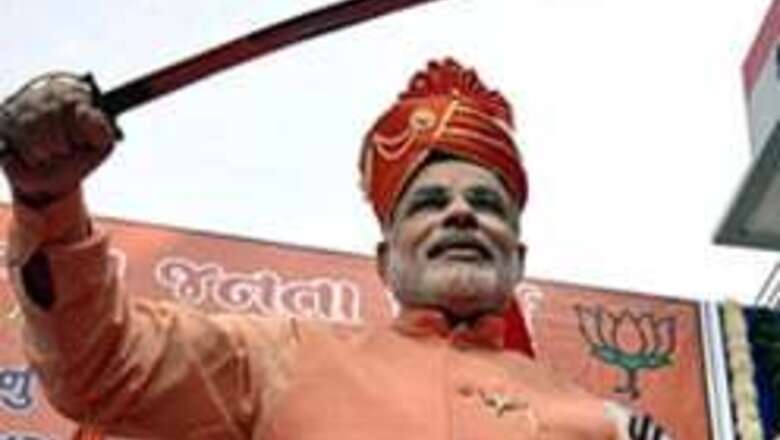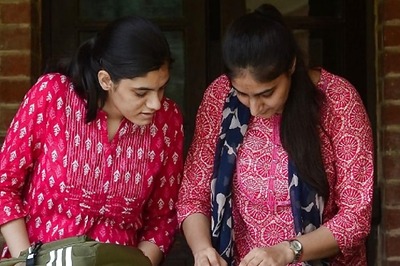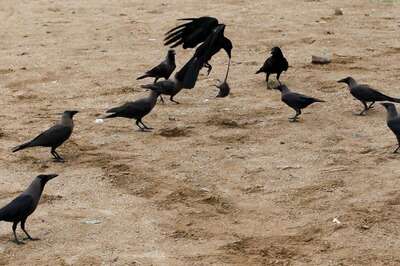
views
The assertive re-election of Narendra Modi as Gujarat chief minister should have been a foregone conclusion for anyone with a reasonable amount of intelligence about the state. Most outsiders do not seem to grasp the simple fact that a vast majority of Gujaratis sees Modi as a symbol of their regional identity. Everything else, his ideology, his religious zealotry, and even his personal abrasiveness is secondary.
Like all manifestations of regional identities in India's fractious polity, Modi too is a broadly collective expression of the Gujarati community. One may question the quality of that expression but one cannot be dismissive about the level of commitment that a decisive number of the people of the state bring to bear on it. In re-electing Modi, a significant majority of Gujarat is merely extending their innate ability to choose the right stock. The right stock being not necessarily being the best company, but the most profitable one. The two may converge frequently, although not always.
There is no great analysis needed for the Congress party's debacle in Gujarat except saying that it continued with a failed approach in not being able to create a strong counter to Modi's brand of unabashed chauvinism. There is something inherently unbeatable about chauvinism mixed with a strong economic growth. If the economic growth keeps up its pace, especially in a highly industrialised state like Gujarat, people tend to disregard the cost at which they achieve it.
All industrialised economies keep a margin for collateral damage. It is true of America as a country and it is true of Gujarat as a state. In Gujarat, the collateral damage has been social harmony. Since life is good for a large number of Gujaratis in this state of 55 million people, the breach in social harmony does not appear to be as large as it may really be. The people of Gujarat are not in denial about what happened in 2002, they have merely internalised it as an acceptable collateral damage.
One of the most frequently used expressions by the Bharatiya Janata Party (BJP) leadership on the question of the 2002 Hindu-Muslim conflagration was that the people of the state have "moved on" beyond that. That is precisely the kind of response one would expect from a business savvy state where people are willing to take a short-term small loss for an eventual big profit.
The inevitable question now being raised is whether his solid victory means Modi is poised for a future high profile national role on behalf of his party. It is pointless speaking in ambiguities. The question is can he become India's prime minister in the near future? It is not altogether improbable as long as Modi recognises that India is not Gujarat and he will need far greater flexibility, serious ideological dilution, skullduggery and inclusiveness to fulfil the mandate as a national leader.
PAGE_BREAK
It is not as if the national leadership has a history of having only accepted stellar figures. Consider Charan Singh, Inder Kumar Gujral, Chandra Shekhar and Deve Gowda, who were all marginal men catapulted to prominence by cynical politics. So let's not make too much of the benchmark that we have set for a national leadership role.
At least for now, Modi's own party has effectively blocked his way from becoming prime minister should it win in the next general elections. Having already projected the 80-year-old Lal Krishna Advani as their prime ministerial candidate in clear pre-emption of any ambition that Modi might be harbouring, the BJP has revealed its preference. Whether or not the party leadership admits it publicly it does find Modi a bit of a renegade who sees himself as a singular figure in whose political life the party has fast become incidental. BJP president Rajnath Singh's reminder that the party is bigger than individuals is indicative of the anxieties caused by Modi's powerful return. This is notwithstanding that Modi systematically trampled on party egos throughout the election campaigning.
It is obvious that the BJP is in dire need of second tier leaders who can step in as the founders such as Atal Bihari Vajpayee and Advani gradually fade away. It is undeniable that among the younger leaders Modi is arguably the most influential figure. It may not necessarily be true but Modi's conduct gives one the impression that he could not care less about what his party might think of him. In that sense he has bypassed the party as the middleman and struck a direct deal with the people of his state. That strategy can work in a single state but is unlikely to produce results on the national level where so many competing daggers come out when it comes to deciding who the national leader is.
The Gujarat victory offers Modi a brilliant opportunity to repair his serious image problems. Wedded as he is to the cause of Gujarat even Modi would not like to spend the rest of his political career in the state. If he has any ambitions of a greater public role, it would be politically expedient for him to seriously reach out to the Muslim community in the state and demonstrate he cares for them as well. He has now reached a stage within Gujarat where he can pretty much set his own distinct agenda that may or may not coincide with what the party wants and what some of his more extreme constituents do.
(Mayank Chhaya is a Chicago-based writer and commentator)




















Comments
0 comment